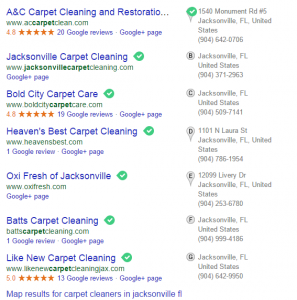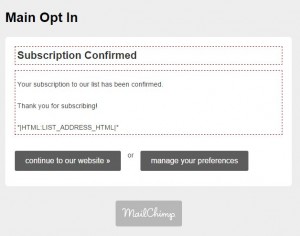Employees want to be more than proverbial cogs in the machine. While they expect fair wages and benefits in exchange for their output, talents, and services, they also desire to be regarded as more than functionally required. One way businesses can acknowledge the value and contributions of their employees is through incentives that show appreciation or give recognition.
Employee incentive programs, which typically reward performance, honor a noteworthy period of service to an organization, or pay tribute to high-level achievements, are present within most companies. A survey conducted by the Society of Human Resource Management (SHRM) and Globoforce examined workplace efforts to recognize and engage employees. SHRM found that 80% of organizations operate some form of employee incentive program. These reward systems are used to reinforce organizational values, nurture positive company culture, and enhance the quality of periodic performance reviews. But what if employees operate within a virtual work environment?
Geographically dispersed teams can still meaningfully engage in employee incentive programs despite physical distance. Employers who want to reward employees should not feel limited by working remotely, but rather, emboldened by it. Here’s how to show appreciation and give recognition to employees in a virtual work environment:
Differences in Showing Appreciation and Giving Recognition to Employees
“In simple terms, recognition is about what people do; appreciation is about who they are,” Mike Robbins writes for Harvard Business Review.
Robbins’ 2019 publication explores the importance of and differences in showing appreciation and giving recognition to employees. While the concepts are often used interchangeably, knowing their differences is an important component of understanding how to effectively utilize employee appreciation and recognition within a virtual work environment.
Showing appreciation to employees focuses on honoring an employee’s value and worth both as an individual and as a team member. It exists despite workplace challenges, mistakes, and failures that all telework employees confront at one time or another. Meanwhile, giving recognition to an employee in a virtual work environment relates to employee job performance and feedback. It is conditional, based on results, and can be competitive among large remote-enabled companies.
Pros and Cons of Monetary Incentives for Virtual Employees
When determining the type of reward a virtual employee will receive, employers should evaluate the pros and cons of monetary incentives. The benefits of using financial inducements to express employee appreciation and recognition include straightforwardness, ease of implementation, and fairness. A monetary reward is a universal motivator that can quickly lead to improved work enthusiasm, inspiration to achieve short-term business productivity goals, and influence to recruit or retain eager talent.
While the potential cost of a monetary employee rewards system is an obvious downside, another con of financial inducements may be surprising. The London School of Economics and Political Science (LSE) studied the impact of monetary rewards for job performance. LSE found that performance-related financial incentives can backfire and often do not inspire employees to work harder. In fact, monetary performance rewards may diminish work motivation among employees, according to Dr. Bernd Irlenbusch of LSE’s Department of Management.
“We find that financial incentives may indeed reduce intrinsic motivation and diminish ethical or other reasons for complying with workplace social norms such as fairness. As a consequence, the provision of incentives can result in a negative impact on overall performance,” Dr. Irlenbusch said.
Universal Appreciation and Recognition Ideas for Remote Workers
Depending on a company’s decision to use non-monetary honors, monetary rewards, or a combination of incentive styles, suggestions from the following lists can be implemented within all virtual work environments:
Non-Monetary Rewards
- Career tracking for upward mobility
- Wellness benefits and family leave
- Discounts or vouchers to local attractions or classes of interest to the employee
- Added vacation time
- Periodic peer- or manager-nominated company awards
- Virtual volunteerism opportunities
- Bonus hours or days off for specific goal completion
- Handwritten, personal notes offering praise, congratulations, or thanks
- Privilege incentives such as an employee passing off their least favorite task to a manager for a day or allowing an employee to plan a virtual meet-up or team event
- One-on-one mentorship time with a member of upper management
Monetary Rewards
- Performance bonuses
- Piece rates
- Holiday bonuses
- Stock options
- On-target earnings and/or commission
- Incremental raises
- Travel reimbursement
- Company profit sharing
- 401(k) matching
- Tuition reimbursement
Employee Incentive Suggestions for Fully Virtual Employees
Fully virtual employees work from a non-centralized location without completing work on-site at a company headquarters or hub. They may never engage in face-to-face meetings with colleagues or managers. However, virtual employees may be asked to visit a company office for a meeting during the onboarding process, complete minimal business travel, or attend an annual company event.
3 Ways Employers Can Show Appreciation to Virtual Employees
- Partner with an online gift-giving platform to deliver employee-selected, curated digital gifts or meals to employees for birthdays, anniversaries, peer-to-peer awards, or holidays.
- Give branded company apparel, mugs, or office accessories during onboarding or work anniversaries, which is an especially thoughtful gift for virtual workers who do not have to wear company uniforms and typically supply their own home office tools and décor.
- Offer stipends for online professional development and skills-building courses that employees can use to strengthen their current talents or explore new ones.
3 Ways Employers Can Give Recognition to Virtual Employees
- Feature employee success and career stories in a dedicated space on the company website.
- Shout out employee achievements on company social media pages.
- Highlight employee accomplishments via a company newsletter or channel in the company’s remote communication platform of choice; a separate channel could also be created for peer-to-peer recognition, encouragement, and advice.
Employee Incentive Suggestions for Hybrid Employees
Hybrid employees complete some of their work from a virtual work environment but also work on-site in a physical office and/or complete at least a moderate amount of work travel. While hybrid professionals enjoy the flexibility of remote work, in many ways, they function as traditional employees.
3 Ways Employers Can Show Appreciation to Hybrid Employees
- Increase work-life balance and integration inducements like more work-at-home days and flextime hours.
- Provide perks like designated parking, snacks and beverages, and break rooms for hybrid employees to enjoy when they work on-site.
- Create usable co-working space for hybrid employees to utilize when on-site, especially if they do not have designated offices within the building.
3 Ways Employers Can Give Recognition to Hybrid Employees
- Host a meet-and-greet or thank you event, whether conducted virtually or in-person, to introduce new hybrid employees to other staff or publicly praise their achievements, which will help hybrid employees feel seen and less excluded.
- Honor job performance and dedication to work travel by replacing a piece of essential equipment like a Wi-Fi hotspot or computer bag.
- Develop a points system for ongoing recognition each time they excel in a particular area or exceed benchmarks; points and then be redeemed for things like relevant gifts, experiences, or more virtual workdays.
9 Employee Incentive Tips for Managers and Employers in a Virtual Work Environment
Any employee rewards program must be well-managed to be effective. Whether incentivizing fully virtual employees, hybrid employees, or both, remote managers and employers can apply these nine success criteria to guide their efforts in showing appreciation and giving recognition to employees in a virtual work environment:
- Do not complicate the rewards system; incentive programs should not create administrative or participant stress.
- Write and publish policy outlining the purpose, eligibility terms, approval process, rewards types and frequency, performance expectations, and other incentive program guidelines.
- Remember the tax implications of employee rewards, which, barring a few exceptions, qualify as additional earnings and must be documented on employees’ W-2 forms.
- Ensure the rewards program mirrors or elevates the company’s mission statement and business goals.
- Commit sufficient resources, including time, planning, and money, to the rewards program.
- Consider the appropriateness of the award scheme, in that employees should always feel work completed in the name of an incentive program is not devalued or inconsequential, as if only done as part of a game, compared to standard projects or assignments.
- Prioritize the timeliness of awarding incentives so that employees connect the desired behavior with the reward presented.
- Accept employee feedback about the type of incentives offered as well as who is chosen to receive them.
- Periodically review the objectives, procedures, awards, engagement, and reviews associated with the incentive program, then improve the system based on those findings.
The Bottom Line
Showing appreciation and giving recognition to employees in a virtual work environment is an effective way to strengthen company culture by acknowledging employees’ value as individuals independent of work as well as their accomplishments relevant to their jobs.
Non-monetary versus monetary rewards and incentives for fully virtually employees versus hybrid employees should all be considered when developing an employee incentive program but, most importantly, employees should feel supported and encouraged irrespective of formal rewards programs. Some of the most meaningful employee incentives develop from micro-recognitions and informal affirmations.
When employees work within a culture where they feel validated daily, additional incentives will be more successful.
Business & Finance Articles on Business 2 Community
(74)








